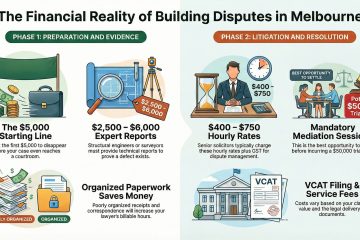Attorneys must be able to communicate complicated legal concepts clearly and simply in plain language. Furthermore, they should show professionalism and integrity when engaging in conversations with clients, other lawyers, or insurance companies.
An effective personal injury attorney should be able to navigate legal hurdles, medical access and insurance coverage on behalf of their client. You can evaluate which attorney would best meet your needs during an initial consultation meeting.
Experience
Experience matters when it comes to personal injury cases, so it’s essential that you hire an attorney with proven success handling similar scenarios as yours and who can use this knowledge for maximum effect in achieving a favorable result in your case.
An attorney with experience litigating traumatic brain injuries will have a deep understanding of the medical issues related to such claims, which allows him or her to negotiate a settlement that addresses future needs, such as breakthrough procedures for paralysis victims or lifelong medication requirements for burn victims.
Personal injury lawyers must also demonstrate empathy towards their clients’ losses. This is especially important in cases involving serious injuries like full-thickness burns or spinal cord traumas which have long-term impacts on victims and their families, providing greater relief during a time of difficulty for all concerned. Showing empathy towards clients helps build trust while making them feel at ease during this challenging period of their lives.
Reputation
Reputation can play an essential part in how effective personal injury lawyers represent their clients and collect compensation. Insurance companies may be more willing to negotiate with an attorney who appears professional and confident when in court, for instance.
An experienced personal injury attorney will possess a deep knowledge of personal injury law and have experience navigating the legal system successfully, while they should also have a track record in handling similar cases as yours.
Find an attorney who is readily accessible and responsive to your inquiries throughout the legal process, since an inaccessible personal injury lawyer could miss key deadlines and fail to collect essential evidence that could bolster your case. Finally, it is recommended that an attorney belong to national and state organizations dedicated to representing injured parties as these organizations often sponsor legal publications and lobby on consumers’ behalf.
Fees
Personal injury lawyers typically charge contingency fees instead of hourly rates, meaning they only get paid if they win compensation on your behalf. Most will provide a percentage of any settlement award or jury verdict; typically this ranges from 33%-40%; it could go higher if your case proceeds all the way to trial.
Your attorney must draft their fee agreement in writing and include all reimbursable expenses that are standard costs such as photocopying, long-distance phone calls and court filing fees. Furthermore, before incurring any other expense such as expert witness fees they should obtain your approval first.
Large personal injury firms provide their clients with a range of services, such as comprehensive medical care coordination, insurance coverage access and access to an expert network for developing your case. While their costs will likely exceed those of smaller local firms, they may provide the greatest chance for winning an outsized judgment in your favor.
Communication
Personal injury attorneys must be able to communicate clearly and concisely with their clients. Furthermore, they should explain complex legal concepts so that clients can comprehend them.
A good personal injury attorney will take into account your medical needs when negotiating a settlement with the insurance company. For example, if you suffered severe burns that left full-thickness scarring behind, they must factor in costs related to future treatments like skin grafts.
Make sure to ask your prospective attorney what their litigation strategy is; some personal injury attorneys prefer settling cases out-of-court, while others are prepared to go the distance if needed. Also ask how frequently they will contact you with updates on the status of your case – if they respond slowly to phone calls and meeting requests or consistently ignore you altogether, then perhaps this attorney is not suitable.


